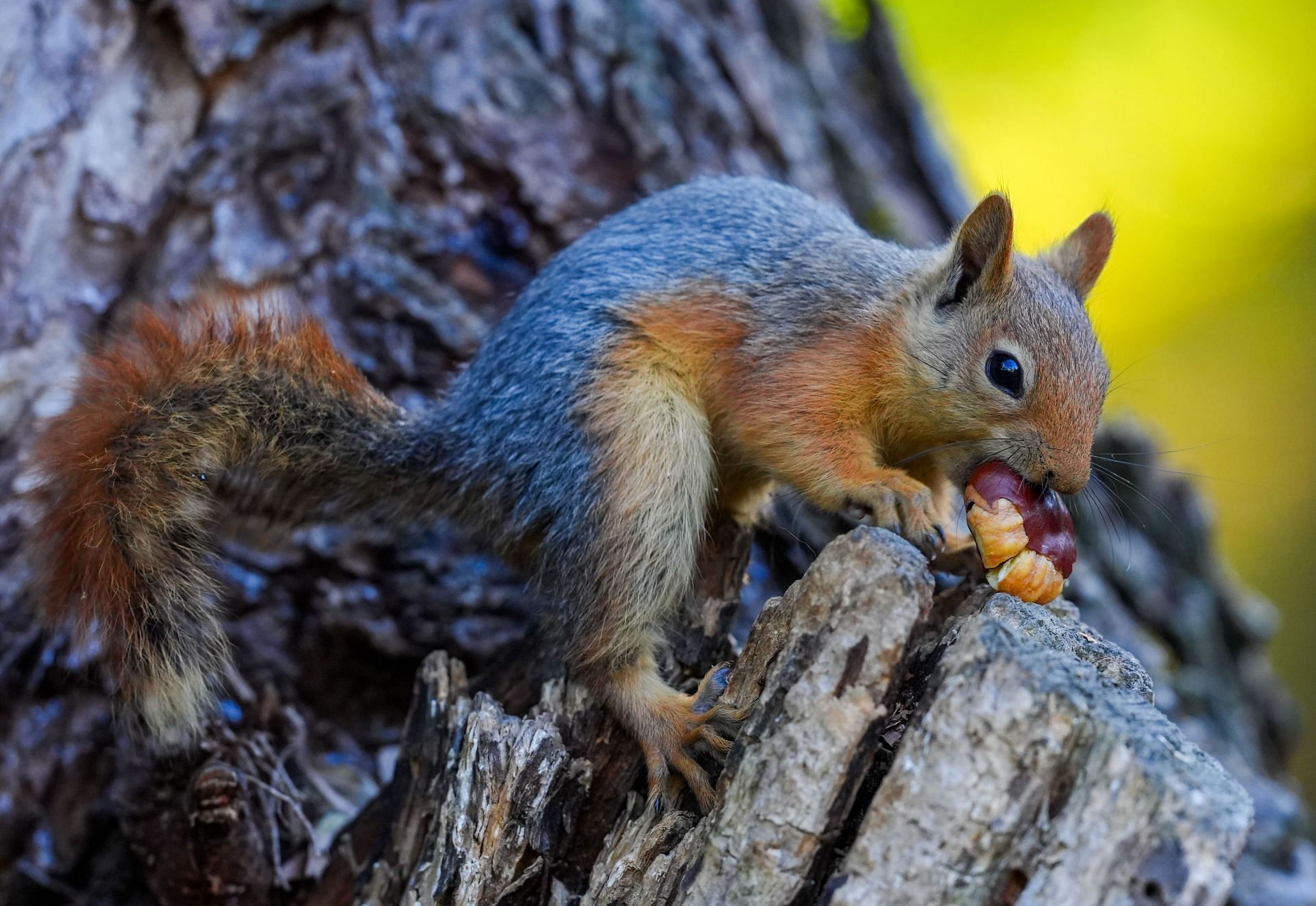
Do squirrels carry rabies? Reasoning behind euthanizing Peanut the Squirrel sparks outrage online
Internet sensation and pet Peanut the Squirrel was seized from its owner Mark Longo and later euthanized by the New York State Department of Environmental Conservation (DEC) on October 30 in Pine City, Chemung County, NY.
The action followed multiple complaints received by the DEC against Peanut the Squirrel and its fellow pet Fred the Raccoon, who was also taken away and put to rest. Following the incident, the DEC issued a joint statement with the Chemung County Department of Health.
They shared that their action was “to ensure the protection of public health related to the illegal possession of wild animals that have the potential to carry the rabies virus.” However, people online pointed out how squirrels do not carry rabies and questioned the DEC’s actions.
Meanwhile, according to the CDC, as squirrels are mammals, they are susceptible to rabies. However, contracting the disease is extremely rare as they do not come into contact with other rabid animals such as bats, skunks, or raccoons. Nor do squirrels behave in a way that increases their risk of exposure.
In this regard, here are some of the comments from the social media platform X.
“The risk of rabies from squirrels is minuscule. There have been no known transmissions from them to humans. Like most rodents, they're not likely to survive getting infected in the first place,” a person wrote.
“Squirrels, mice, and other small rodents have only very rarely been found to have rabies, and have never been known to transmit rabies to humans or other animals. In general, postexposure treatment is not recommended after a bite from one of these animals unless it is unusually vicious or appears obviously ill,” wrote another.
“Most insane thing about Peanut being murdered is there is zero record of a Squirrel having or giving a human being rabies on record in all of human history,” a user wrote.
“Could somebody tell the DEC and the Chemung County Health Department that you can't get rabies from a squirrel bite?” asked another.
Others continued to weigh in:
“It was not about rabies at all,” an individual wrote.
“They killed them to send a message to people who keep wild animals as pets. No threat of rabies. Infuriating!” wrote another.
“Or that rabies has been under substantial control in NYS for decades. That’s why when we hear of a case it’s big news. These jerks knew exactly what they were doing. It was under the guise of rabies,” a netizen wrote.
“That means nothing. Because it never happened before it doesn’t mean it can’t happen. There was also a raccoon in the house and they are a known carrier for rabies. Everyone’s making a big deal, I have nothing,” wrote another.
Exploring whether squirrels carry rabies amid Peanut the Squirrel's euthanasia
Last Wednesday, Peanut the Squirrel was euthanized by the DEC citing the risk of rabies. The organization, along with the Chemung County health department, issued a statement where they mentioned how keeping young and small-sized wildlife at home as pets was “illegal.”
The joint statement further continued by claiming that these animals were “not well suited for life in captivity” and often carried “diseases that can be given to people.” They claimed to have euthanized Peanut the Squirrel as it bit one of their investigators.
Whoever came in contact with the pet was also urged to get themselves checked by medical professionals, while they were checking Peanut the Squirrel’s remains for signs of rabies in the labs.
While the action created online outrage, it is noteworthy that as per the Centers for Disease Control and Prevention, it is unlikely for squirrels to contract rabies. This is because rabies is contracted through the bites of rabies-infected animals.
However, squirrels have different and cautious behavioral patterns and habitat preferences compared to potentially rabid animals including raccoons, foxes, and bats, and thus, they hardly confront or interact with them.
Not only that but squirrels have a strong immune system that can battle infections such as the rabies virus.
While the CDC monitors rabies cases across the USA, instances involving squirrels have been extremely low or negligible. However, even though it’s rare, it is still important to look out for signs of rabies in the animal, such as extreme lethargy, aggression, or disorientation.
The CDC advises people not to approach such potentially infected squirrels and to seek the help of experts.
Meanwhile, as per New York legislation, it is indeed illegal to keep wildlife such as squirrels at home. Only licensed wildlife rehabilitators are allowed to legally keep and care for them, considering the animals are released into the wild as soon as they are treated and ready.
It remains unclear whether Peanut the Squirrel's owner Mark Longo was a licensed wildlife rehabilitator.
While Peanut the Squirrel may or may not have had rabies, it is noteworthy that it lived with fellow pet Fred the Raccoon which was a rabies-prone animal.